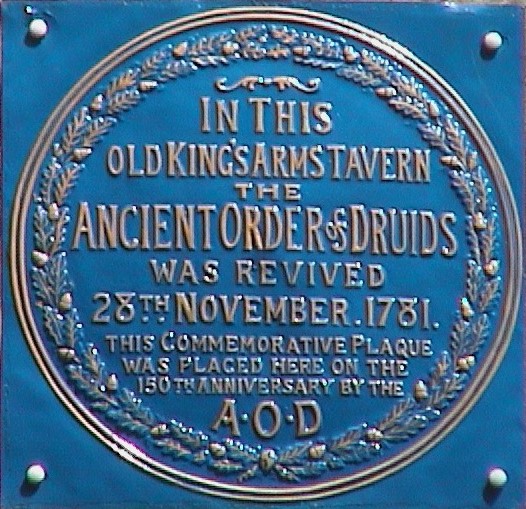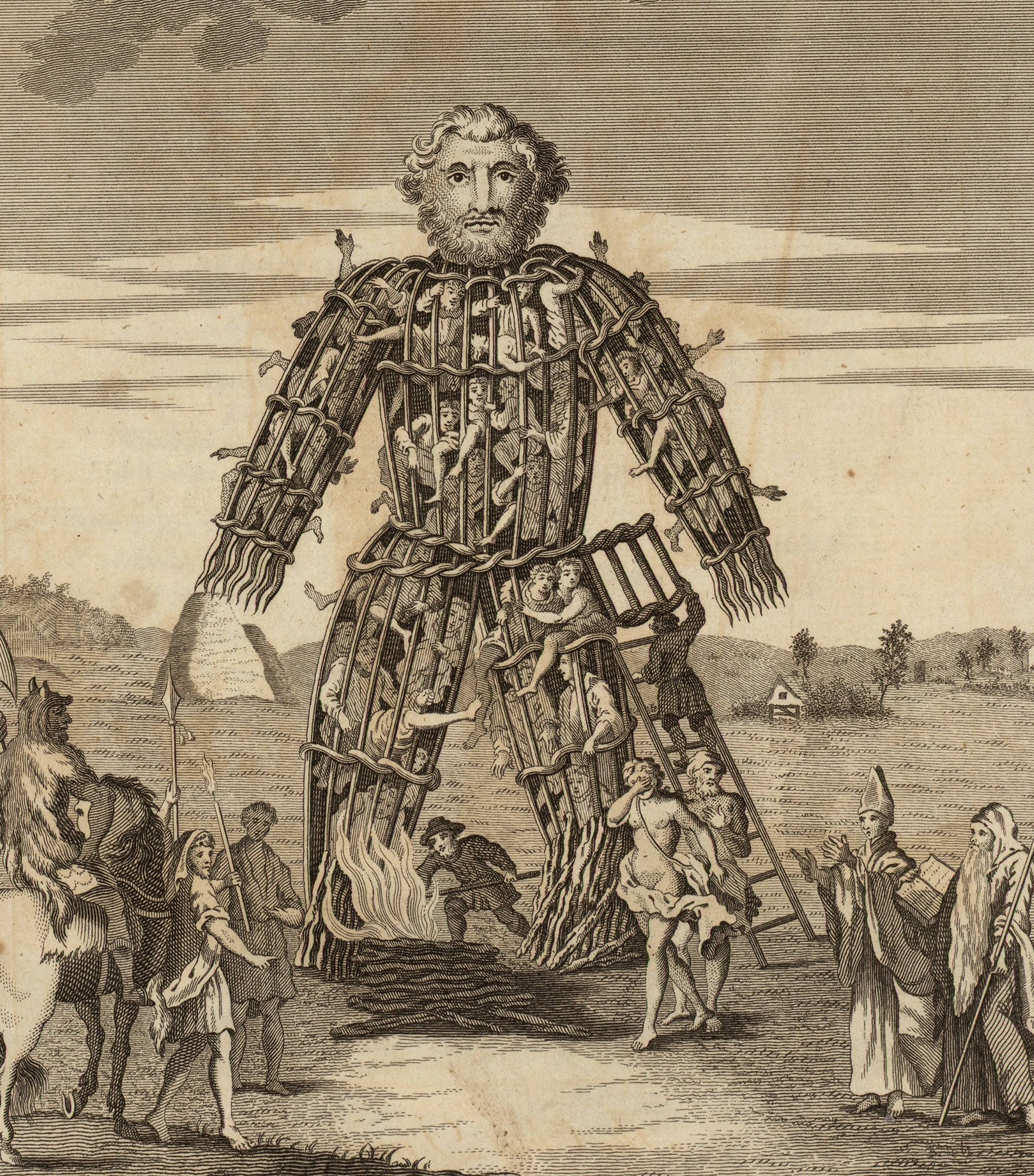|
Neo-druidism
Druidry, sometimes termed Druidism, is a modern spiritual or religious movement that promotes the cultivation of honorable relationships with the physical landscapes, flora, fauna, and diverse peoples of the world, as well as with nature deities, and spirits of nature and place. Theological beliefs among modern Druids are diverse; however, all modern Druids venerate the divine essence of nature. While there are significant variations in the expression and practice of modern Druidry, a core set of spiritual and devotional practices may be observed, including: meditation; prayer/conversation with deities and spirits; the use of extra-sensory methods of seeking wisdom and guidance; the use of nature-based spiritual frameworks to structure devotional practices and rituals; and a regular practice of nature connection and environmental stewardship work. Neo-Druidry emerged in 18th-century Britain as part of the Romantic movement, which idealized the perceived spiritual wisdom and ... [...More Info...] [...Related Items...] OR: [Wikipedia] [Google] [Baidu] |
Celtic Reconstructionist Paganism
Celtic neopaganism refers to any type of modern paganism or contemporary pagan movements based on the ancient Celtic religion. One approach is Celtic Reconstructionism (CR), which emphasizes historical accuracy in reviving Celtic traditions. CR practitioners rely on historical sources and archaeology for their rituals and beliefs, including offerings to spirits and deities. Language study and preservation are essential, and daily life often incorporates ritual elements. While distinct from eclectic pagan and neopagan witchcraft traditions, there is some overlap with Neo-druidism. Additionally, Celtic neoshamanism combines Celtic elements with shamanic practices, while Celtic Wicca blends Celtic mythology with Wiccan traditions. Each tradition within Celtic neopaganism has its unique focus and practices but draws inspiration from the ancient Celtic heritage. Celtic reconstructionism Celtic reconstructionism (CR) or Celtic reconstructionist paganism is a polytheistic reconstruc ... [...More Info...] [...Related Items...] OR: [Wikipedia] [Google] [Baidu] |
Ancient Order Of Druids
The Ancient Order of Druids (AOD) is the oldest neo-druid order in the world. It was formed in London, England, in 1781. Its motto is ''Dieu, Notre Pays et Roy'' (old) and ''Justice, Philanthropy and Brotherly Love''. History 28 November 1781, in the King’s Arms tavern, near Oxford Street, some gentlemen decided to create an association basing the name and some of the iconography upon what was then believed about the ancient druids. Despite a few semantic similarities, initiatory aspects and the use of regalia, the AOD, since its origins, is completely distinct from Freemasonry. By the 1920s, two different stories were circling amongst members of the Order regarding its foundation. The first held that it was created by a group of friends who were merchants and artisans who liked to regularly meet at the King's Arms tavern just off Oxford Street in the West End of London. To keep out unwanted intruders, they became a formal society, and chose to adopt the name of the druids ... [...More Info...] [...Related Items...] OR: [Wikipedia] [Google] [Baidu] |
Druids Celebrating At Stonehenge (1)
A druid was a member of the high-ranking Priestly caste, priestly class in ancient Celts, Celtic cultures. The druids were religious leaders as well as legal authorities, adjudicators, Folklore, lorekeepers, medical professionals and political advisors. Druids left no written accounts. While they were reported to have been literate, they are believed to have been prevented by doctrine from recording their knowledge in written form. Their beliefs and practices are attested in some detail by their contemporaries from other cultures, such as the Romans and the Greeks. The earliest known references to the druids date to the 4th century BC. The oldest detailed description comes from Julius Caesar's ''Commentarii de Bello Gallico'' (50s BC). They were described by other Roman writers such as Cicero,#Cic44, Cicero (44) I.XVI.90. Tacitus, and Pliny the Elder. Following the Roman invasion of Gaul, the druid orders were suppressed by the Roman government under the 1st-century AD ... [...More Info...] [...Related Items...] OR: [Wikipedia] [Google] [Baidu] |
Druid
A druid was a member of the high-ranking priestly class in ancient Celtic cultures. The druids were religious leaders as well as legal authorities, adjudicators, lorekeepers, medical professionals and political advisors. Druids left no written accounts. While they were reported to have been literate, they are believed to have been prevented by doctrine from recording their knowledge in written form. Their beliefs and practices are attested in some detail by their contemporaries from other cultures, such as the Romans and the Greeks. The earliest known references to the druids date to the 4th century BC. The oldest detailed description comes from Julius Caesar's ''Commentarii de Bello Gallico'' (50s BC). They were described by other Roman writers such as Cicero, Cicero (44) I.XVI.90. Tacitus, and Pliny the Elder. Following the Roman invasion of Gaul, the druid orders were suppressed by the Roman government under the 1st-century AD emperors Tiberius and Claudius, a ... [...More Info...] [...Related Items...] OR: [Wikipedia] [Google] [Baidu] |
Iolo Morganwg
Edward Williams, better known by his bardic name Iolo Morganwg (; 10March 174718December 1826), was a Welsh antiquarian, poet and collector.Jones, Mary (2004)"Edward Williams/Iolo Morganwg/Iolo Morgannwg" From ''Jones' Celtic Encyclopedia''. Retrieved 11 June 2009 (only USA, see. He was seen as an expert collector of Medieval Welsh literature, but it emerged after his death that he had forged several manuscripts, notably some of the Third Series of Welsh Triads.Mary Jones (2003)"Y Myvyrian Archaiology" From ''Jones' Celtic Encyclopedia''. Retrieved 11 June 2009 (in US only. Even so, he had a lasting impact on Welsh culture, notably in founding the secret society known as the Gorsedd, through which Iolo Morganwg successfully co-opted the 18th-century Eisteddfod revival. The philosophy he spread in his forgeries has had an enormous impact upon neo-Druidism. His bardic name is Welsh for "Iolo of Glamorgan". Early life Edward Williams was born in Pen-onn, near Llancarfan, Vale o ... [...More Info...] [...Related Items...] OR: [Wikipedia] [Google] [Baidu] |
Thomas Jefferson
Thomas Jefferson (, 1743July 4, 1826) was an American Founding Fathers of the United States, Founding Father and the third president of the United States from 1801 to 1809. He was the primary author of the United States Declaration of Independence, Declaration of Independence. Jefferson was the nation's first United States Secretary of State, U.S. secretary of state under George Washington and then the nation's second vice president of the United States, vice president under John Adams. Jefferson was a leading proponent of democracy, republicanism, and Natural law, natural rights, and he produced formative documents and decisions at the state, national, and international levels. Jefferson was born into the Colony of Virginia's planter class, dependent on slavery in the colonial history of the United States, slave labor. During the American Revolution, Jefferson represented Virginia in the Second Continental Congress, which unanimously adopted the Declaration of Independence. ... [...More Info...] [...Related Items...] OR: [Wikipedia] [Google] [Baidu] |
Homer
Homer (; , ; possibly born ) was an Ancient Greece, Ancient Greek poet who is credited as the author of the ''Iliad'' and the ''Odyssey'', two epic poems that are foundational works of ancient Greek literature. Despite doubts about his authorship, Homer is considered one of the most revered and influential authors in history. The ''Iliad'' centers on a quarrel between King Agamemnon and the warrior Achilles during the last year of the Trojan War. The ''Odyssey'' chronicles the ten-year journey of Odysseus, king of Homer's Ithaca, Ithaca, back to his home after the fall of Troy. The epics depict man's struggle, the ''Odyssey'' especially so, as Odysseus perseveres through the punishment of the gods. The poems are in Homeric Greek, also known as Epic Greek, a literary language that shows a mixture of features of the Ionic Greek, Ionic and Aeolic Greek, Aeolic dialects from different centuries; the predominant influence is Eastern Ionic. Most researchers believe that the poems w ... [...More Info...] [...Related Items...] OR: [Wikipedia] [Google] [Baidu] |
Ossian
Ossian (; Irish Gaelic/Scottish Gaelic: ''Oisean'') is the narrator and purported author of a cycle of epic poems published by the Scottish poet James Macpherson, originally as ''Fingal'' (1761) and ''Temora (poem), Temora'' (1763), and later combined under the title ''The Poems of Ossian''. Macpherson claimed to have collected word-of-mouth material in Scottish Gaelic language, Scottish Gaelic, said to be from ancient sources, and that the work was his translation of that material. Ossian is based on Oisín, son of Fionn mac Cumhaill (anglicised to Finn McCool), a legendary bard in Irish mythology. Contemporary critics were divided in their view of the work's authenticity, but the current consensus is that Macpherson largely composed the poems himself, drawing in part on traditional Gaelic poetry he had collected. The work was internationally popular, translated into all the literary languages of Europe, and was highly influential both in the development of the Romanticism, Rom ... [...More Info...] [...Related Items...] OR: [Wikipedia] [Google] [Baidu] |
Voltaire
François-Marie Arouet (; 21 November 169430 May 1778), known by his ''Pen name, nom de plume'' Voltaire (, ; ), was a French Age of Enlightenment, Enlightenment writer, philosopher (''philosophe''), satirist, and historian. Famous for his wit and his criticism of Christianity (especially Criticism of the Catholic Church, of the Roman Catholic Church) and of slavery, Voltaire was an advocate of freedom of speech, freedom of religion, and separation of church and state. Voltaire was a versatile and prolific writer, producing works in almost every literary form, including Stageplay, plays, poems, novels, essays, histories, and even scientific Exposition (narrative), expositions. He wrote more than 20,000 letters and 2,000 books and pamphlets. Voltaire was one of the first authors to become renowned and commercially successful internationally. He was an outspoken advocate of civil liberties and was at constant risk from the strict censorship laws of the Catholic French monarchy. H ... [...More Info...] [...Related Items...] OR: [Wikipedia] [Google] [Baidu] |
James Macpherson
James Macpherson ( Gaelic: ''Seumas MacMhuirich'' or ''Seumas Mac a' Phearsain''; 27 October 1736 – 17 February 1796) was a Scottish writer, poet, literary collector, and politician. He is known for the Ossian cycle of epic poems, which he claimed to have discovered and translated from Gaelic. Early life and education Macpherson was born at Ruthven in the parish of Kingussie in Badenoch, Inverness-shire. This was a Scottish Gaelic-speaking area but near the Ruthven Barracks of the British Army, established in 1719 to enforce Whig rule from London after the Jacobite uprising of 1715. Macpherson's uncle, Ewen Macpherson joined the Jacobite army in the 1745 march south, when Macpherson was nine years old and after the Battle of Culloden, had had to remain in hiding for nine years. In the 1752-3 session, Macpherson was sent to King's College, Aberdeen, moving two years later to Marischal College (the two institutions later became the University of Aberdeen), reading Ca ... [...More Info...] [...Related Items...] OR: [Wikipedia] [Google] [Baidu] |
Roman Empire
The Roman Empire ruled the Mediterranean and much of Europe, Western Asia and North Africa. The Roman people, Romans conquered most of this during the Roman Republic, Republic, and it was ruled by emperors following Octavian's assumption of effective sole rule in 27 BC. The Western Roman Empire, western empire collapsed in 476 AD, but the Byzantine Empire, eastern empire lasted until the fall of Constantinople in 1453. By 100 BC, the city of Rome had expanded its rule from the Italian peninsula to most of the Mediterranean Sea, Mediterranean and beyond. However, it was severely destabilised by List of Roman civil wars and revolts, civil wars and political conflicts, which culminated in the Wars of Augustus, victory of Octavian over Mark Antony and Cleopatra at the Battle of Actium in 31 BC, and the subsequent conquest of the Ptolemaic Kingdom in Egypt. In 27 BC, the Roman Senate granted Octavian overarching military power () and the new title of ''Augustus (title), Augustus'' ... [...More Info...] [...Related Items...] OR: [Wikipedia] [Google] [Baidu] |








